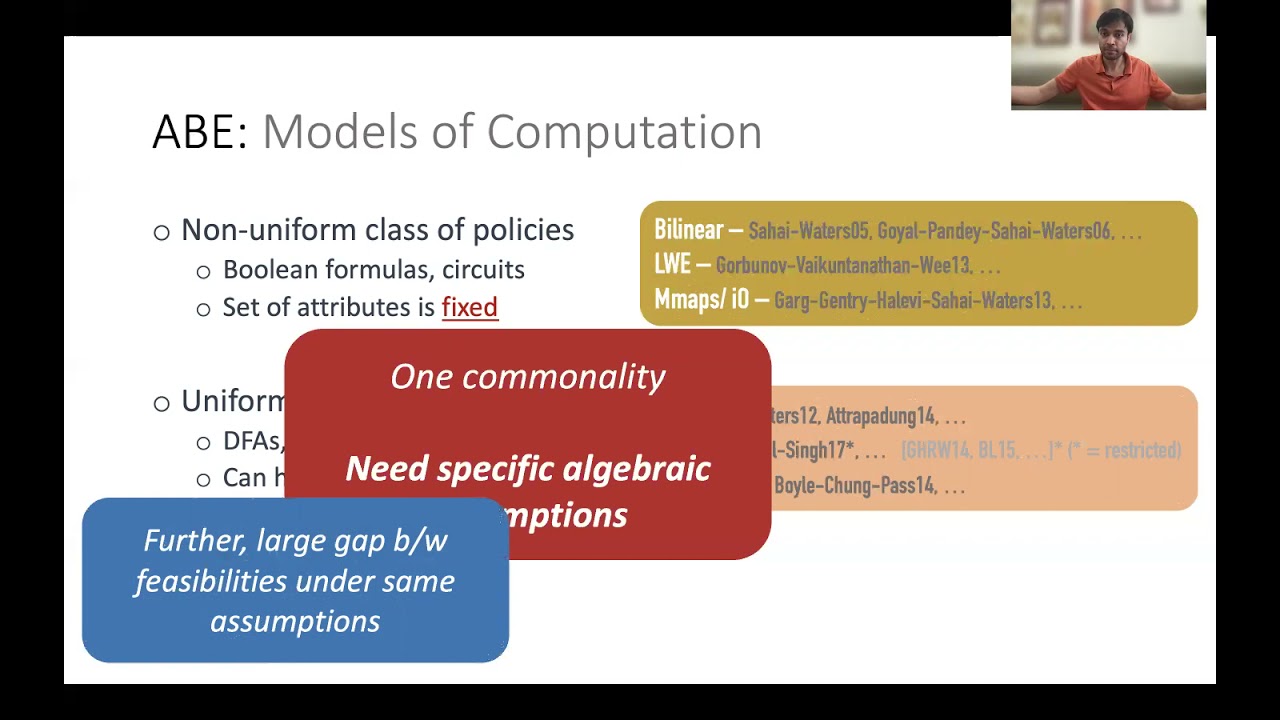Welcome to the resource topic for 2021/709
Title:
Bounded Collusion ABE for TMs from IBE
Authors: Rishab Goyal, Ridwan Syed, Brent Waters
Abstract:We give an attribute-based encryption system for Turing Machines that is provably secure assuming only the existence of identity-based encryption (IBE) for large identity spaces. Currently, IBE is known to be realizable from most mainstream number theoretic assumptions that imply public key cryptography including factoring, the search Diffie-Hellman assumption, and the Learning with Errors assumption. Our core construction provides security against an attacker that makes a single key query for a machine T before declaring a challenge string w^* that is associated with the challenge ciphertext. We build our construction by leveraging a Garbled RAM construction of Gentry, Halevi, Raykova, and Wichs; however, to prove security we need to introduce a new notion of security called iterated simulation security. We then show how to transform our core construction into one that is secure for an a-priori bounded number q = q(\lambda) of key queries that can occur either before or after the challenge ciphertext. We do this by first showing how one can use a special type of non-committing encryption to transform a system that is secure only if a single key is chosen before the challenge ciphertext is declared into one where the single key can be requested either before or after the challenge ciphertext. We give a simple construction of this non-committing encryption from public key encryption in the Random Oracle Model. Next, one can apply standard combinatorial techniques to lift from single-key adaptive security to q-key adaptive security.
ePrint: https://eprint.iacr.org/2021/709
Talk: https://www.youtube.com/watch?v=SVgqt0on58w
See all topics related to this paper.
Feel free to post resources that are related to this paper below.
Example resources include: implementations, explanation materials, talks, slides, links to previous discussions on other websites.
For more information, see the rules for Resource Topics .
